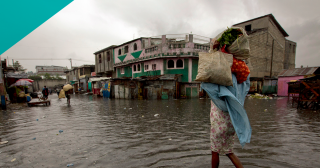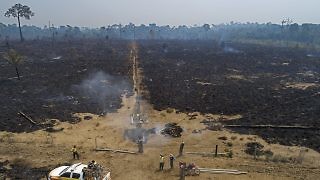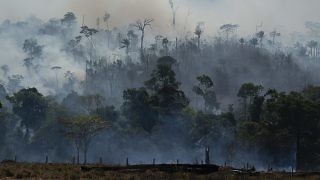The time is ripe for innovative thinking and pragmatic solutions at the nexus of the international climate change and WPS agendas.
Author: Adriana Erthal Abdenur
-
-
Some of the most promising innovations for enhancing the monitoring of forests involve artificial intelligence.
-
A tricky question is how to conserve global public goods, such as forests, at a time when multilateral cooperation is waning.
-
Rather than turning up the temperature, governments should be working to de-escalate the crisis before Venezuela melts down entirely.








